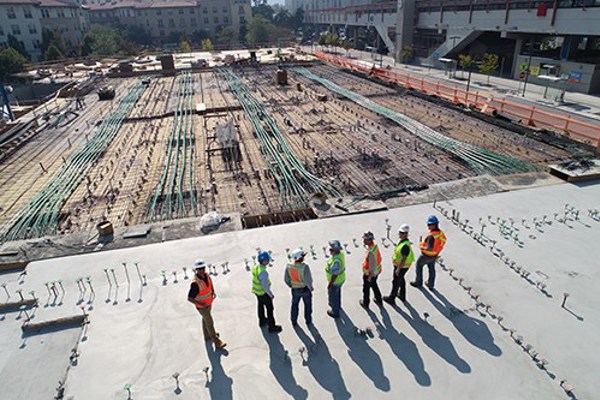At its Annual Construction Industry Reception held on the Terrace of the House of Commons on 13 June 2025, the Joint Contracts Tribunal (JCT) introduced its new Target Cost Contract (TCC) which is designed to share risk and promote collaborative working in construction projects.
The TCC becomes part of the new JCT 2024 suite of contracts and will include a main contract, a subcontract, and their respective Guides. The relevant documentation will be available from JCT after 25 June 2025.
Key features of the new contract
Risk sharing
JCT states that the 'ethos of this form is risk sharing' and that the new form 'is apposite for the current difficult marketplace'.
It is designed so that risks are shared between clients/contractors and contractors/subcontractors so that they can 'benefit from their joint efforts in ensuring the project has a successful financial outcome'.
The nature of the provisions
The TCC is based on the JCT Design and Build Contract and intended for use on larger projects where the employer has defined its requirements.
Instead of the Contract Sum, found in other JCT Contracts, the TCC has a Target Cost. The Target Cost is adjusted to take account of things such as Changes, Acceleration Quotations, Fluctuations (where applicable), Costs of Suspension, Loss and Expense and other adjustments defined in the contract.
Under the TCC, the contractor will be paid the 'Allowable Cost' of the Works, as defined, and a Contract Fee, which can be a fixed sum or a percentage of the Allowable Cost.
The Difference Share is the amount determined as the difference between the actual cost of the Works (the sum of the Allowable Cost and the Contract Fee) and the Adjusted Target Cost. That difference, whether positive or negative (usually referred to as the gain or the pain), is then shared between the parties in agreed percentages, or as pre-agreed monetary sums, which are to be entered in the Contract Particulars. The parties can choose if the difference calculation is to be carried out for each Interim Payment and the final payment, or for the final payment only.
The payment regime tries to provide flexibility and incentivises contractors to manage costs effectively.
Collaborative Working
The TCC emphasises the importance of collaborative working among the parties involved in a construction project.
Modernisation
The updates seen in other JCT 2024 contract forms are reflected in the TCC, including the adoption of gender-neutral language and increased flexibility in connection with electronic communications. These changes aim to modernise JCT contracts and reflect current trends in the construction sector.
Adaptation for use in Scotland
As with the other contracts in the new JCT 2024 suite of contracts, the TCC will need to be 'kilted' by the Scottish Building Contract Committee (SBCC) for use in Scotland so that it reflects Scots law and practice.


